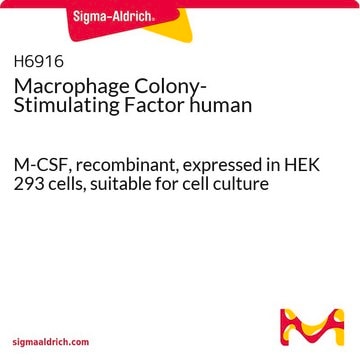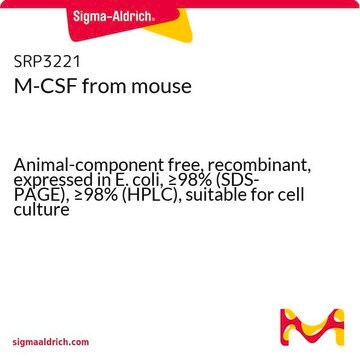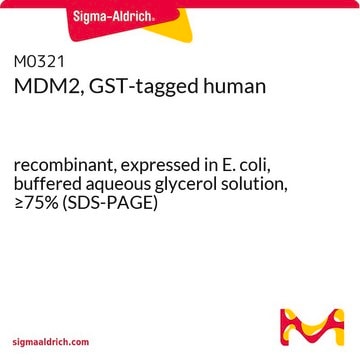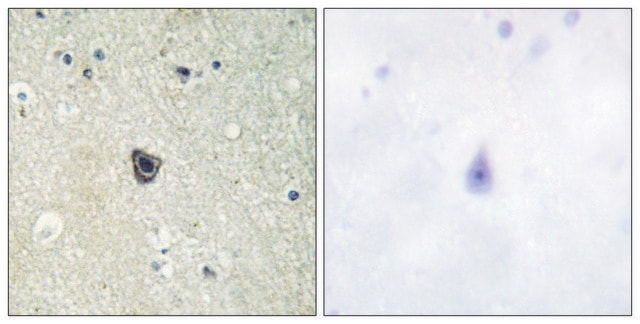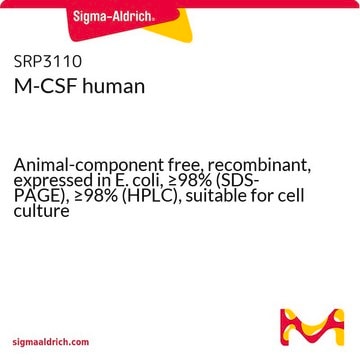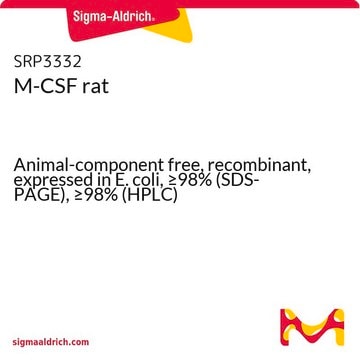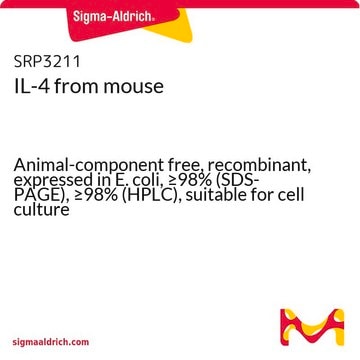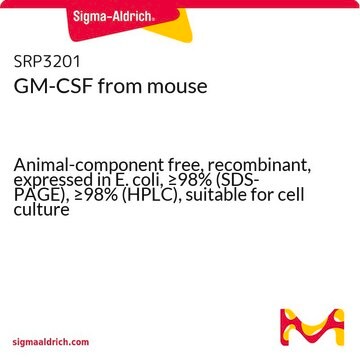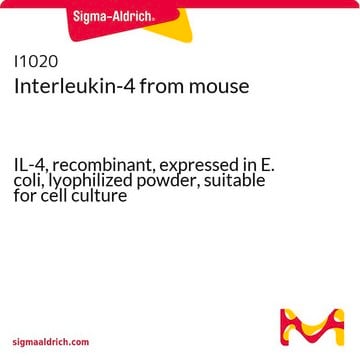M9170
Macrophage Colony-Stimulating Factor from mouse
≥98% (SDS-PAGE), recombinant, expressed in E. coli, lyophilized powder, suitable for cell culture
Synonyme(s) :
CSF-1
About This Item
Produits recommandés
product name
Macrophage Colony-Stimulating Factor from mouse, M-CSF, recombinant, expressed in E. coli, lyophilized powder, suitable for cell culture
Source biologique
mouse
Niveau de qualité
Produit recombinant
expressed in E. coli
Pureté
≥98% (SDS-PAGE)
Forme
lyophilized powder
Puissance
0.500-3.000 ng/mL ED50
Qualité
endotoxin tested
Poids mol.
dimer 18.2 kDa (containing 156 amino acid residues)
Conditionnement
pkg of 10 μg
Technique(s)
cell culture | mammalian: suitable
Impuretés
≤1.000 EU/μg
Couleur
white
Numéro d'accès UniProt
Température de stockage
−20°C
Informations sur le gène
mouse ... Csf1(12977)
Vous recherchez des produits similaires ? Visite Guide de comparaison des produits
Application
- in the initiation of osteoclastogenesis in bone marrow monocyte cells
- to stimulate osteoclast differentiation in non-adherent hematopoietic cell
- for the generation of blood-derived stem cells
Actions biochimiques/physiologiques
Forme physique
Remarque sur l'analyse
Mention d'avertissement
Warning
Mentions de danger
Conseils de prudence
Classification des risques
Eye Irrit. 2 - Skin Irrit. 2 - STOT SE 3
Code de la classe de stockage
11 - Combustible Solids
Classe de danger pour l'eau (WGK)
WGK 2
Point d'éclair (°F)
Not applicable
Point d'éclair (°C)
Not applicable
Équipement de protection individuelle
dust mask type N95 (US), Eyeshields, Gloves
Certificats d'analyse (COA)
Recherchez un Certificats d'analyse (COA) en saisissant le numéro de lot du produit. Les numéros de lot figurent sur l'étiquette du produit après les mots "Lot" ou "Batch".
Déjà en possession de ce produit ?
Retrouvez la documentation relative aux produits que vous avez récemment achetés dans la Bibliothèque de documents.
Les clients ont également consulté
Notre équipe de scientifiques dispose d'une expérience dans tous les secteurs de la recherche, notamment en sciences de la vie, science des matériaux, synthèse chimique, chromatographie, analyse et dans de nombreux autres domaines..
Contacter notre Service technique